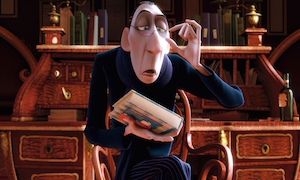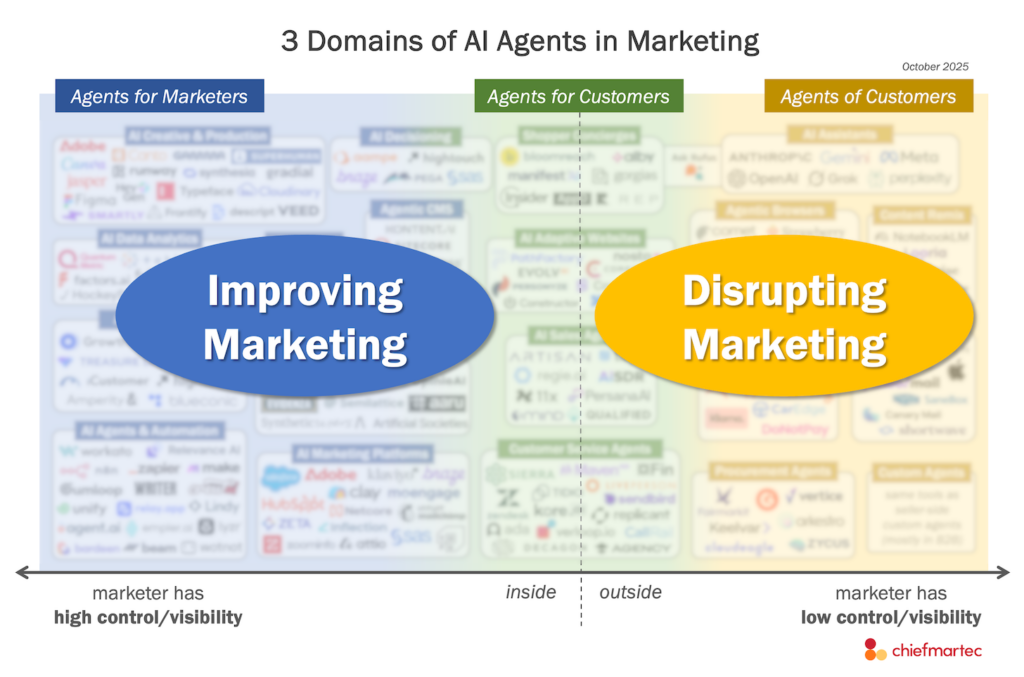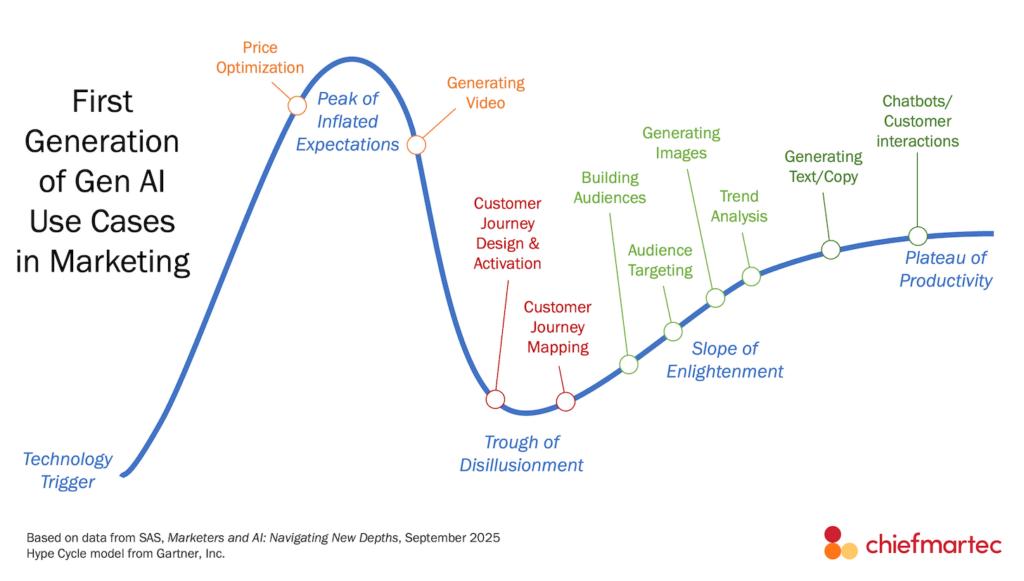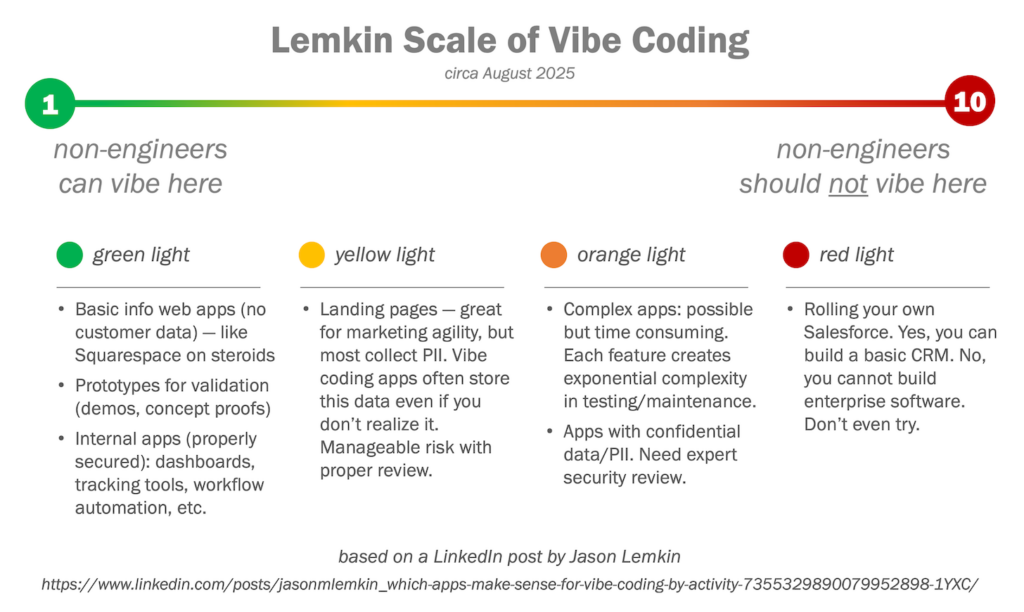Two things happen around the time I’m working on updating my marketing technology landscape graphic each year.
First, I get pitched by a large number of marketing technology entrepreneurs about their ventures and visions. I sincerely regret that due to the constraints of time, I am unable to engage most of them in briefing calls or one-on-one conversations — I’m sorry, I really wish I could. But I do read their emails, and I do visit their websites. And I am genuinely impressed and inspired by what so many of them are doing.
Second, I am reminded by numerous pundits that the burgeoning marketing technology landscape is an anomaly, that it’s going to massively consolidate, that most of these companies clearly cannot be profitable, and that this is all a big bubble. I acknowledge there is a rational basis for their skepticism. I too have written about the 5 stages of maturity in marketing tech categories — that we may be nearing “peak martech” — and the race to own the #1 and #2 brands in each.
But you know what?
My heart is with the “crazy” martech entrepreneurs. Even if — or because — it’s complicated.
I am awed and humbled by the tremendous intellect and imagination being invested in not only making marketing better for marketers, but making marketing better for buyers too — redefining “marketing” for the 21st century as something greater and more meaningful.
You may laugh, or chide, or at least raise one eyebrow. That’s fair. Both startups as a cultural phenomenon (even outside the Bay Area) and marketing as a field have earned their due of skepticism from the rest of the world.
But as Steve Job’s famous “The Crazy Ones” ad concluded, “the people who are crazy enough to think they can change the world, are the ones who do.”
Martech entrepreneurs are crazy enough to think they can reinvent marketing in a digital world, and damned if it doesn’t stir my heart to witness that engine of innovation fly.
Yes, many ventures will fizzle and fail. That’s not specific to marketing tech or even to software — that’s the sobering reality of most new businesses across all industries. Around 60% of all businesses fail within three years. Only a tiny fraction break through to become billion-dollar unicorns. (Their rarity is why we call them unicorns.)
But collectively, these intrepid entrepreneurs move the world forward. They boldly question assumptions. Audaciously challenge the status quo. Irreverently dare to ask, “what if?” — and, more remarkably, courageously dare to seek out the answer to that question.
One of two outcomes happens:
1. They succeed. All the biggest and best companies in the world were born from such a spark of entrepreneurship, overcoming the doubters and naysayers who dismissed them along the way.
2. They don’t. Maybe it was the wrong idea, or the wrong time, or just the wrong execution. But still, these entrepreneurs acquire experience and insight that is hard to achieve through any other crucible. That’s an invaluable asset they’ll bring to every subsequent venture they pursue or participate in. Many of them will have had a positive impact on the companies they strived so passionately to serve. And collectively, the market as a whole learns from their experience.
Both outcomes, in the grand scheme of things, contribute to a better future.
This is evolution in action, exploring a multitude of variations, eliminating those that don’t work, propagating those that do. Individual creatures come and go, but the DNA of the species advances. And the survivors owe their genetics to those who came before them.
Don’t get me wrong — I believe the pundits who doubt the current martech landscape are a valuable voice too. This Cambrian explosion of marketing technology needs smart critics who question the viability of new entrants and clamor to see victors rise above the melee. Skeptical analysis is an important counterpoint to unbridled innovative enthusiasm. It’s good to ask the hard questions. That push — at its best, tough love — helps move things forward too.
But let’s balance that with respect and admiration for those who are fighting in the arena. Win or lose, they are heroes. And I don’t believe this market is predictible enough for anyone to claim, beyond a doubt, that they know exactly how it will play out.
Ever see the Pixar movie Ratatuoille? A wonderful film about art and talent and the defiance of expectations. In the end, the food critic (restaurant market analyst?) Anton Ego reflects on his career and monologues:
“In many ways, the work of a critic is easy. We risk very little, yet enjoy a position over those who offer up their work and their selves to our judgment. We thrive on negative criticism, which is fun to write and to read. But the bitter truth we critics must face is that, in the grand scheme of things, the average piece of junk is probably more meaningful than our criticism designating it so. But there are times when a critic truly risks something, and that is in the discovery and defense of the new. The world is often unkind to new talent, new creations. The new needs friends.”
P.S. Yes, I am a marketing tech entrepreneur myself, so you could argue this is just self-serving rhetoric. And indeed, this creed personally motivates me every day. But my point is that the glory of this phenomenon is far greater than any one company.
P.P.S. If you’re inspired by the innovation of the marketing tech world too, you really should attend MarTech in San Francisco next month. A friendly reminder that the early bird “beta” rate on tickets expires this Saturday, February 13. (Okay, that is self-serving rhetoric. But it’s true.)




